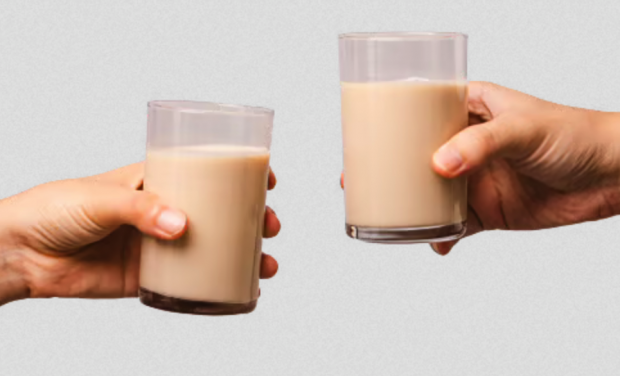When we talk about different health disorders, Type 2 diabetes is one of the major ones. The human body has a system to regulate the usage of sugar or glucose. However, when a person is diagnosed with Type 2 diabetes, they experience elevated blood sugar levels. Furthermore, such a situation can impair the immune system and the human body.
In the case of type 2 diabetes, the pancreas is affected. As a result, it cannot produce the required amount of insulin. Insulin is a hormone that is responsible for regulating sugar in our bodies. The cells respond erratically to this situation; thus, an imbalance is formed.
If you ask at what age can a person get such a disorder, Type 1 and Type 2 diabetes can be juvenile or adult-onset. Still, Type 2 diabetes is more common among older adults. However, we have seen young adults and children prone to Type 2 diabetes in the current era.
Furthermore, when a person is diagnosed, they don’t have any cure for this disorder. But, by changing their lifestyle, losing weight, having healthy eating, and exercising, they can manage the disease quickly. Even if the person cannot work it, they must consider insulin therapy.
Type 2 diabetes – Causes & symptoms
There is no clear-cut idea of how Type 2 diabetes is caused. However, it is related to the impaired functioning of the pancreas, which in turn doesn’t produce enough insulin as required. People who are obese, overweight, and have inactive lifestyles are prone to Type 2 diabetes. Meanwhile, other causes can contribute to this disorder:
• the person has a family history of Type 2 diabetes
• poor diet intake
• people who are more than 50 years of age are prone
• women having PCOD, having a baby of more than 4 kgs, gestational diabetes
Talking about the symptoms, most people don’t experience a significant change. However, some symptoms include:
• constantly feeling tired and hungry
• urge to urinate more often
• having cuts or bruise which takes time to heal
• the feeling of being thirsty
• experiencing weight loss
• blurred vision
• the feeling of numbness in hands and feet
Prevention is better than cure – The main focus
We discussed the onset of Type 2 diabetes, its causes, and symptoms. The person would have to see a doctor because they might be at risk. One doesn’t want to end up with further complications and co-morbidities – eye damage, kidney disease, nerve damage, hearing impairment, sleep apnea, and dementia. Any of these complications can happen if not taken seriously.

However, it is rightly said that prevention is better than cure, and we have the solution. The best things are to take a healthy diet, lose weight, don’t stay inactive for a more extended period, etc. Furthermore, the plant-based diet is much more beneficial for weight management and heart health by using protective nutrients.
Lowering Type 2 diabetes risk with a plant-based diet
Choosing a plant-based diet is the best option one can get. It includes nuts, beans, peas, fruits, legumes, vegetables, etc. These nutrients are rich in magnesium, which helps in lowering type 2 diabetes risks. Secondly, the antioxidants help insulin activity in our body, so the glucose is regulated correctly. A healthy gut is a sign of a healthy body and immune system. People should include oats, onions, and garlic in their diet.
One can add plant-based food to their breakfast, lunch, and dinner, along with evening snacks. Vegetarians and vegans can have plant-based food to have a high fiber intake. Meanwhile, the person feels satisfied even with fewer calories, which is not the case for meat-eating people. It helps in weight loss, thus making the pancreas work more effectively to release insulin.
What about plant-based milk products?
Do you drink milk every day? Yes, you do, and get the best nutrients to make you feel healthy. The person drinks milk from a child to adult to ensure immunity. However, dairy production impacts the environment, and we have started adopting alternatives instead of milk obtained from dairy animals. We call it plant-based milk, which is lactose-free and lower in fats.
We take a look at some plant-based milk products which are beneficial. Furthermore, they help in lowering the risk of Type 2 diabetes.
Soy Milk
An alternative to dairy animal milk, soy milk is consumed globally by people. It helps maintain cholesterol levels and is also used for cooking and baking.
BamNut milk
This kind of milk is made from Bambara groundnuts and is a perfect alternative to dairy animals’ milk. BamNut milk includes the goodness of Vitamin B12, Vitamin D2, and calcium. It is delicious to taste and is free from any additives.
Almond milk
It’s not about being rich enough to afford almond milk or cashew milk. Most people have now adopted this milk. It is rich in vitamin E and lowers calories with minimum fiber intake.
Conclusion
Plant-based food products, including plant-based milk, are a good source of vitamins and minerals. Improve your health and make sure you stay away from the risks of Type 2 diabetes.
Who is the author?

Mashum Mollah is an entrepreneur, founder, and CEO at BloggerOutreach.io, a blogger outreach agency that drives visibility, engagement, and proven results. He blogs at Blogstellar.






![women [longevity live]](https://longevitylive.com/wp-content/uploads/2020/01/photo-of-women-walking-down-the-street-1116984-100x100.jpg)










